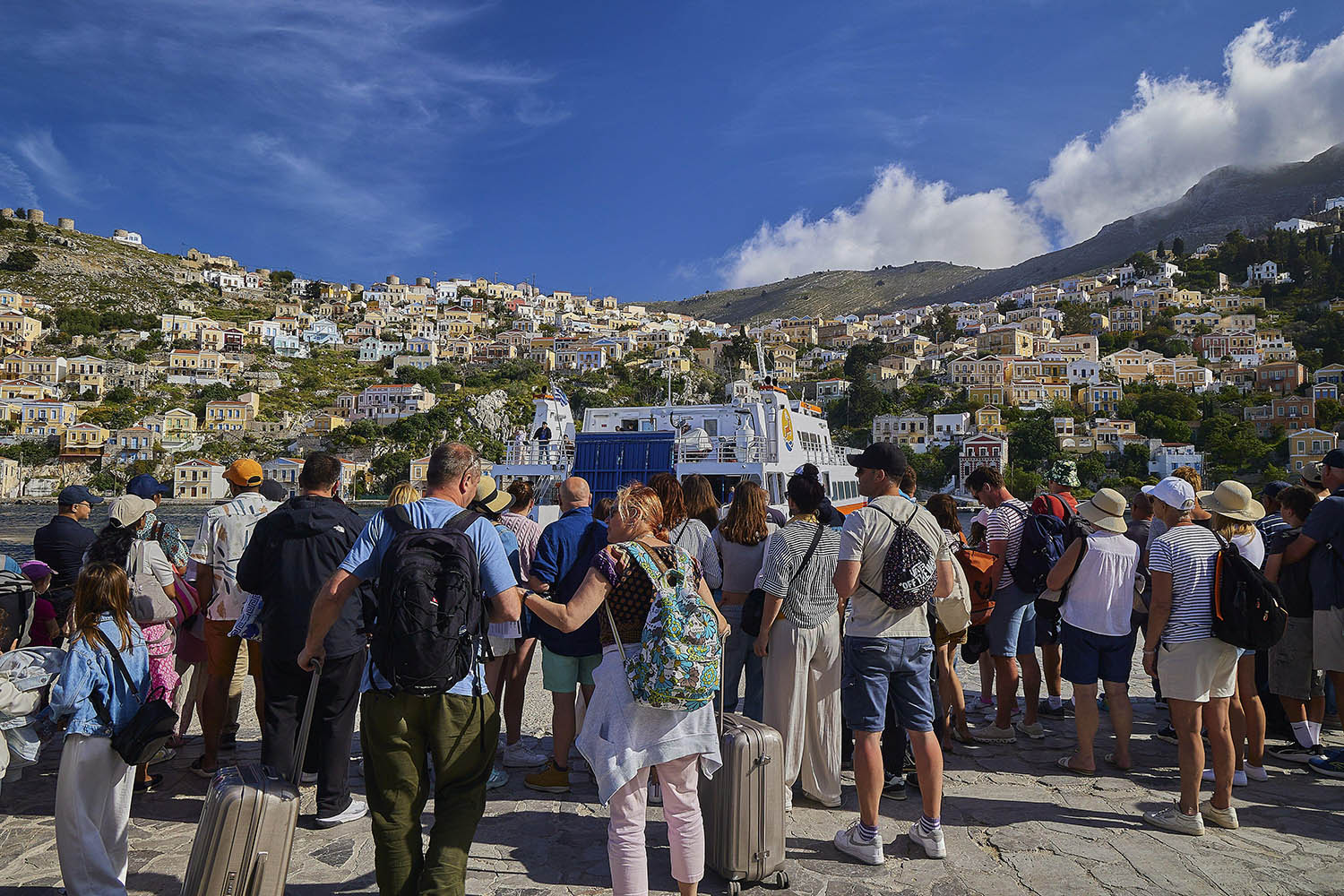Forest fires, fireball sunsets, Sahara-style heat. For weeks, it seems, the sun has burned brighter than ever in Greece.
In late July when the mercury surpassed 40C for seven straight days, culture ministry officials were left with no other option but to keep archaeological sites shut. Even the Acropolis was off limits when the sun was at its most fierce.
Yet tourists keep coming. Before the season peaks, industry figures have begun to speak gleefully of another record year. Revenues are up 12%, tourism minister Olga Kefalogianni enthused last week, even if at this stage arrivals have only risen negligibly. “We have achieved our goal of becoming one of the top 10 most popular places globally,” she said, attributing the success, in part, to tourists piling in even in the winter.
An unprecedented 40.7 million visitors – four times the population – were recorded last year, according to the Bank of Greece. Few believe that number won’t soar further if the centre-right government makes good on its promise to conquer the markets of Asia.
From the balcony of the neoclassical building that houses the town hall in Symi, mayor Lefteris Papakalodoukas has a bird’s-eye view of the boats that almost hourly decant tourists from nearby Rhodes.
The remote Aegean isle – home to barely 2,500 people – is a big draw. Last year more than 500,000 tourists passed through, strolling around its picturesque harbour which municipal employees labour to keep clean. “On any day between 1,000 to 5,000 people arrive,” the mayor tells me. “Most don’t spend the night, which means no income is derived from hotel taxes, but still, our public services are under enormous strain. It’s got to the point where the municipality needs to take action.”
Recently the mayor dared to propose that a €3 levy be imposed on day-trippers – a bulwark against the depredations of overtourism.
Papakalodoukas stops short of saying Greece has been too successful for its own good. Tourism, after all, remains the engine of the nation’s economy, providing in excess of 20% of GDP and one in five jobs. But he’s clearly worried.
‘Tax could be added to passenger tickets and used to upgrade waste collection and disposal, our sewage system, all the services that right now only residents pay for’
‘Tax could be added to passenger tickets and used to upgrade waste collection and disposal, our sewage system, all the services that right now only residents pay for’
“If you think of it just in terms of visitors and bottles of water, that’s a lot of bottles,” he harrumphs. “It’s about sustainability and protecting Symi’s charm and natural beauty. The tax could be added to passenger tickets and used to upgrade waste collection and disposal, our sewage system, all the services that right now only residents pay for.”
It is only a question of time, he says, before other islands make the same demand. “It’s local government that is on the front line of this tourist phenomenon,” he says. “Nationwide municipalities face similar challenges.”
Newsletters
Choose the newsletters you want to receive
View more
For information about how The Observer protects your data, read our Privacy Policy
Pressures are such that on 21 July a cruise levy was slapped on passengers disembarking at Greek ports from the big liners.
In high season, the fee will range from €5 to €20 for ships docking in islands such as Santorini and Mykonos – the country’s most popular cruise destinations. The additional revenues, expected to top €50m annually, will fund port improvements and tourism projects and go towards boosting municipal funds. Ten years after the country narrowly escaped eurozone ejection at the height of its decade-long debt crisis, infrastructure remains woefully under-financed.
“Demand for tourism in Greece has recovered faster than anyone expected during the pandemic,” says Ilias Lekkos, chief economist at Piraeus Bank. “The Greek tourism industry requires substantial investment, not only in hotels and resorts but also on facilities such as ports, airports, electricity grids and water management facilities.”
Far from being the ultimate goal, “expansion of capacity” was unsustainable he insisted. The dark side of overtourism has become as evident in Greece as the sun is bright. The warning signs are everywhere – illuminated by the extremities of climate change but also the fickle nature of a sector that almost all of southern Europe has become overly reliant on.
Tellingly, it’s not been a good year for either overcrowded Mykonos or earthquake-hit Santorini – until this summer, the jewels in the crown of a country bent, in the words of the tourism minister, on transforming into a “unique global tourism power”.
Success also means that almost half of Greeks (46% according to Eurostat) will be unable to go on holiday this year. Priced out by the spiralling costs that the tourist boom has brought, the staycation is a luxury many locals can’t afford.
Photograph by ImageBroker/Alamy
